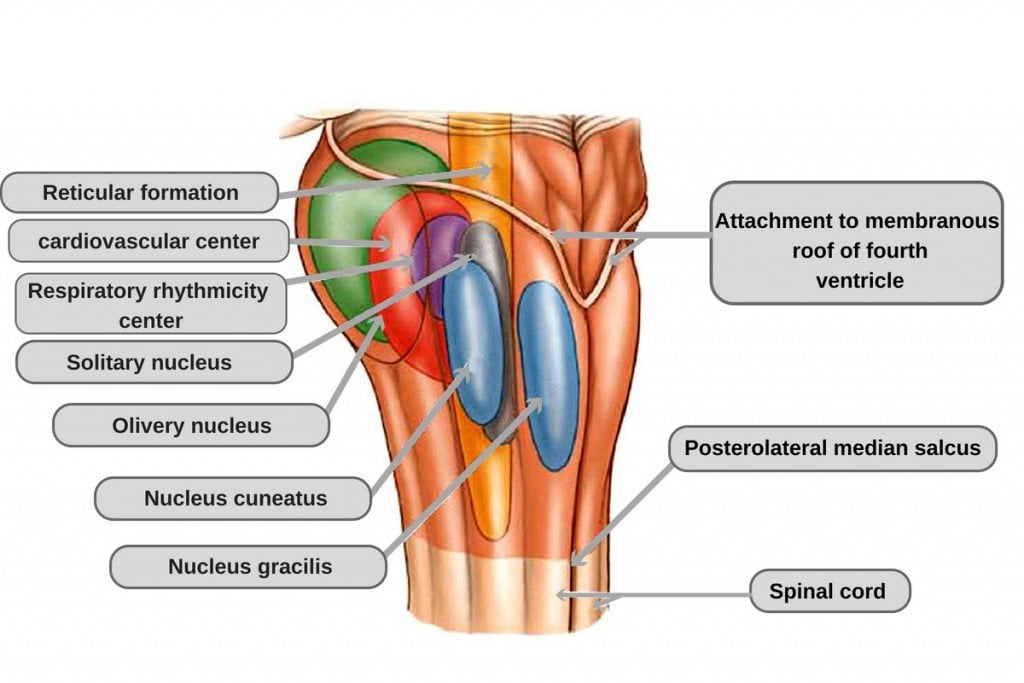The fourth ventricle has a roof at its upper posterior surface and a floor at its lower anterior surface and side walls formed by the cerebellar peduncles nerve bundles joining the structure on the posterior side of the ventricle to the structures on the anterior side.
Roof 4th ventricle.
This apex also known as the fastigium extends into the white core of the cerebellum.
Chaurasia 4th ed vol 3 pages 341 342.
The roof of fourth ventricle is the dorsal surface of the fourth ventricle.
Inferior roof of the fourth ventricle.
The upper portion of the roof is formed by the cerebellum.
The upper part of the roof is composed by a thin sheet of white matter the superior medullary velum that stretches between both superior cerebellar peduncles.
The inferior medullary velum is all that remains of the connection between the nodule and flocculus.
In contrast to the superior roof the inferior roof of the fourth ventricle is formed mainly by two thin membranes the tela choroidea and the inferior medullary velum.
Taeniae with the obex.
Roof of the fourth ventricle is formed by.
The superior part of the roof is formed by the superior cerebellar peduncles and the superior medullary velum thin sheet of white matter.
The roof of the 4th ventricle is tent shaped and has upper and lower sloping surfaces.
The apex of the tent goes posteriorly into the white core of the cerebellum.
Tela choroidea of the the fourth ventricle.
The roof of ventricle is diamond shaped and can be divided into superior and inferior parts.




























